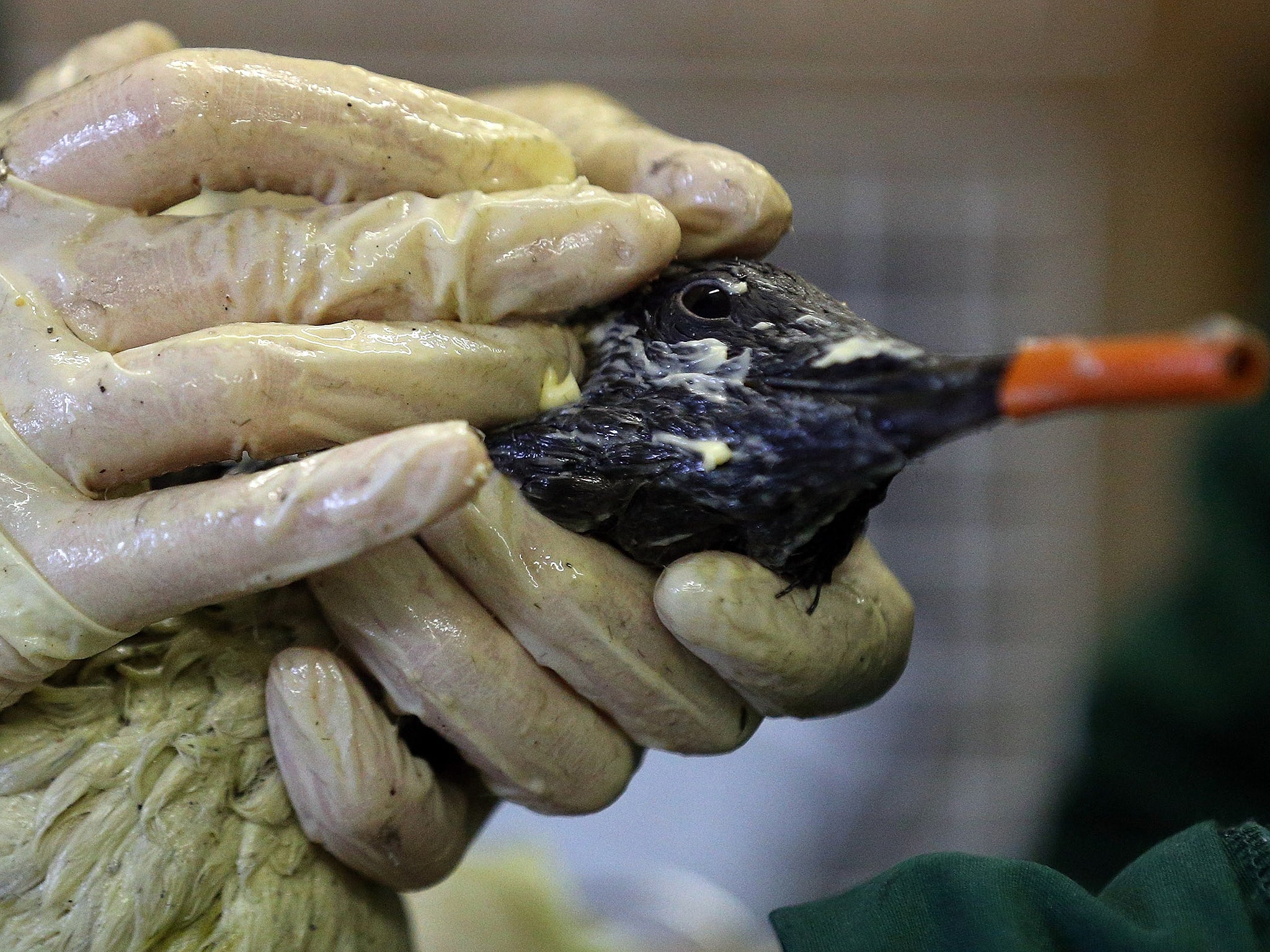Scientists identify sticky gunk that killed seabirds off south coast
University team says substance was additive used in lubricants

Scientists investigating a pollution spill which has killed and harmed hundreds of sea birds off the English coastline say the mystery substance is an oil additive.
A team from Plymouth University in Devon believe the sticky substance is PIB - polyisobutene, which has a chemical mixture ranging from oils to solids.
Professor Steve Rowland, who led the study following the discovery of hundreds of ill seabirds including guillemots along a 200-mile stretch of the south coast last week, said the substance was not believed to be toxic.
He said: “It (PIB) is used as an additive to lubricants.
“It is not toxic according to manufacturers, but it is very sticky.
“When it is caught up in the birds' feathers, it just glues them together. That was one of the things that made it so difficult to establish what it was.”
Prof Rowland said the investigation was complicated by erroneous speculation last Friday that the substance was crude oil, as well as a lack of previous evidence of similar spills. He said the last known pollution of its kind was near Liverpool in 1994.
“This spill (in the south of England) was quite unusual,” he added.
PA
Join our commenting forum
Join thought-provoking conversations, follow other Independent readers and see their replies
Comments
Bookmark popover
Removed from bookmarks